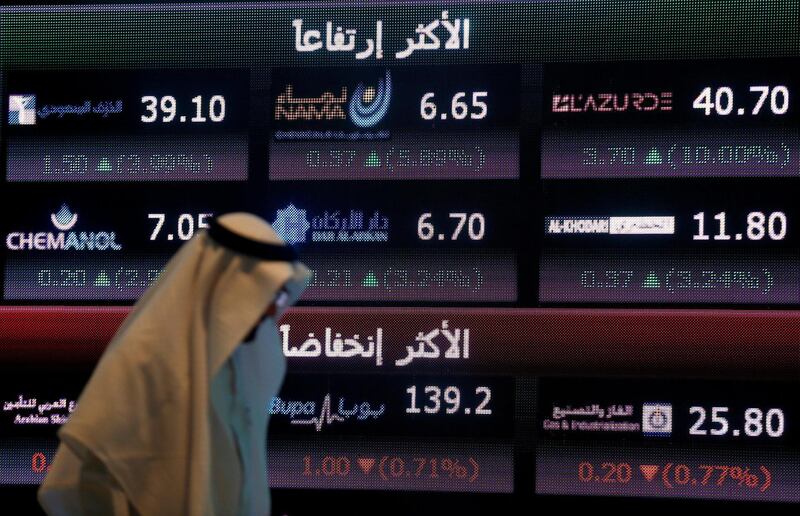Franklin Templeton has become a qualified foreign investor in Saudi Arabia, a status that will allow the US fund manager to directly invest in the Arab world's biggest stock market.
The approval comes as the kingdom implements a far-reaching economic transformation program that aims to stimulate growth and employment, Franklin Templeton said in a statement on Monday.
"Saudi Arabia has an exciting investment story and we want to ensure we are part of its ambitious agenda to reform its capital market," Sandeep Singh, regional head of Central and Eastern Europe, Middle East and Africa and head of Islamic business at Franklin Templeton Investments, said.
In March, index compiler FTSE Russell upgraded Saudi Arabia to emerging market status and rival MSCI is expected to take a similar step this week, measures that have helped the market rise 15 per cent year-to-date. The moves come as the kingdom seeks to open up its stock market further to attract foreign investors and implement reforms to meet international standards. The upgrades and the anticipated listing of Saudi Aramco, the world's biggest oil producer, are expected to pump billions of dollars in foreign investments into the country.
Franklin Templeton is "carefully evaluating" opportunities to grow its Sharia business in particular, which manages $2 billion in assets last year, Mr Singh said.
_______________
Read more:
Opec's Vienna meet could prove bullish for oil markets, say analysts
Opec's new game as rivalries surface over oil production
_______________
Saudi Arabia’s anticipated inclusion into the MSCI Emerging Market Index is expected to bring additional investments of about $35 billion and the potential listing of Saudi Aramco could add another $50 billion in foreign flows depending on valuation, Franklin said.
In January, the Saudi Arabia’s Capital Market Authority made it easier for international investors to buy publicly-traded companies by halving the minimum requirement of qualified foreign investors to $500 million from $1 billion.
As well as introducing T+2 settlement, which means that securities settle two days after they are bought, the CMA also introduced Nomu, a parallel market for qualified investors as well enabling securities borrowing and lending, and the adoption of International Financial Reporting Standards for listed companies.
“Saudi Arabia is a reform story on many levels," Bassel Khatoun, managing director of frontier and MENA at Franklin Templeton Emerging Markets Equity, said. "Bold fiscal reforms, including steps to reduce its reliance on oil, will put Saudi’s economy on more sustainable footing over the long-term."







